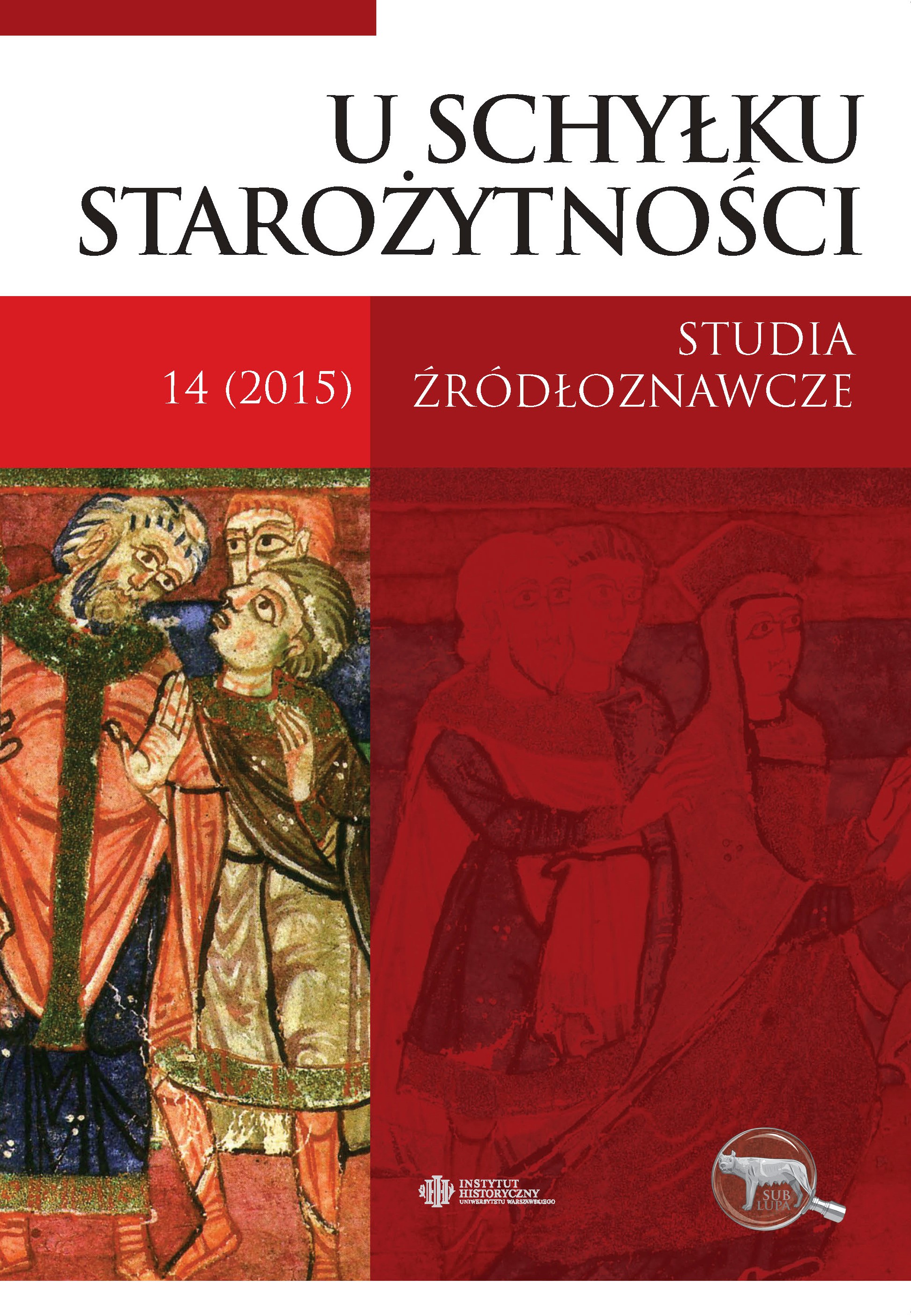Kilka uwag o pozycji i kompetencjach późnorzymskiego wikariusza Teodora w prowincji Palaestina Tertia w VII wieku
Some remarks on the position and powers of the late Roman Vicar Theodore in the province Palaestina Tertia in the 7th century A.D.
Author(s): Łukasz SmorczewskiSubject(s): Social history, Ancient World
Published by: Wydawnictwo Naukowe Sub Lupa
Summary/Abstract: The final decade of the Roman administration’s presence in the Middle East is still a contentious issue in the studies devoted to Late Antiquity. Whether continuation or reorganization prevailed in the management of the oriental provinces prior to the Arabic conquest is still a matter of controversy. The author focuses on the administrative position of the vicar who acted as a military commander in Palaestina Tertia in the early 7th century A.D. This Roman official named Theodore is mentioned in three Byzantine chronicles, all of which describe his victory against Arab troops in the battle of Muta on the 23rd of September 629 A.D. Theophanes Confessor and Anastasius the Librarian state that Theodor had held a post ὁ Βικάριος/Vicarius. However, the chronicler Kedrenos calls him a cubicularius. The PLRE mentioned two possible identifications, that is either that Theodor was a diocesan vicar, or that he was a member of sacrum cubiculum. The paper uses additional evidence on the period to revise the interpretation of Theodore’s post. First of all, the term “vicar” should not be understood solely as a civilian office. On the contrary, vicar was also a military rank, well attested in sources, which depicted his place in the Roman army hierarchy as equal to a military tribune. Secondly, Kedrenos abbreviated events that preceded the Arab conquest of the Roman East, and thus he mixed two different persons in his narration. Presumably Theodor acted as a deputy of the local dux rather than a common commander of a stronghold located close to the imperial border. In fact, Theodore was neither a diocesan vicar nor a cubicularius. Both of the previous identification proposed by the authors of the PLRE should be rejected.
Journal: U schyłku starożytności - Studia źródłoznawcze
- Issue Year: 2015
- Issue No: XIV
- Page Range: 127-143
- Page Count: 17
- Language: Polish

